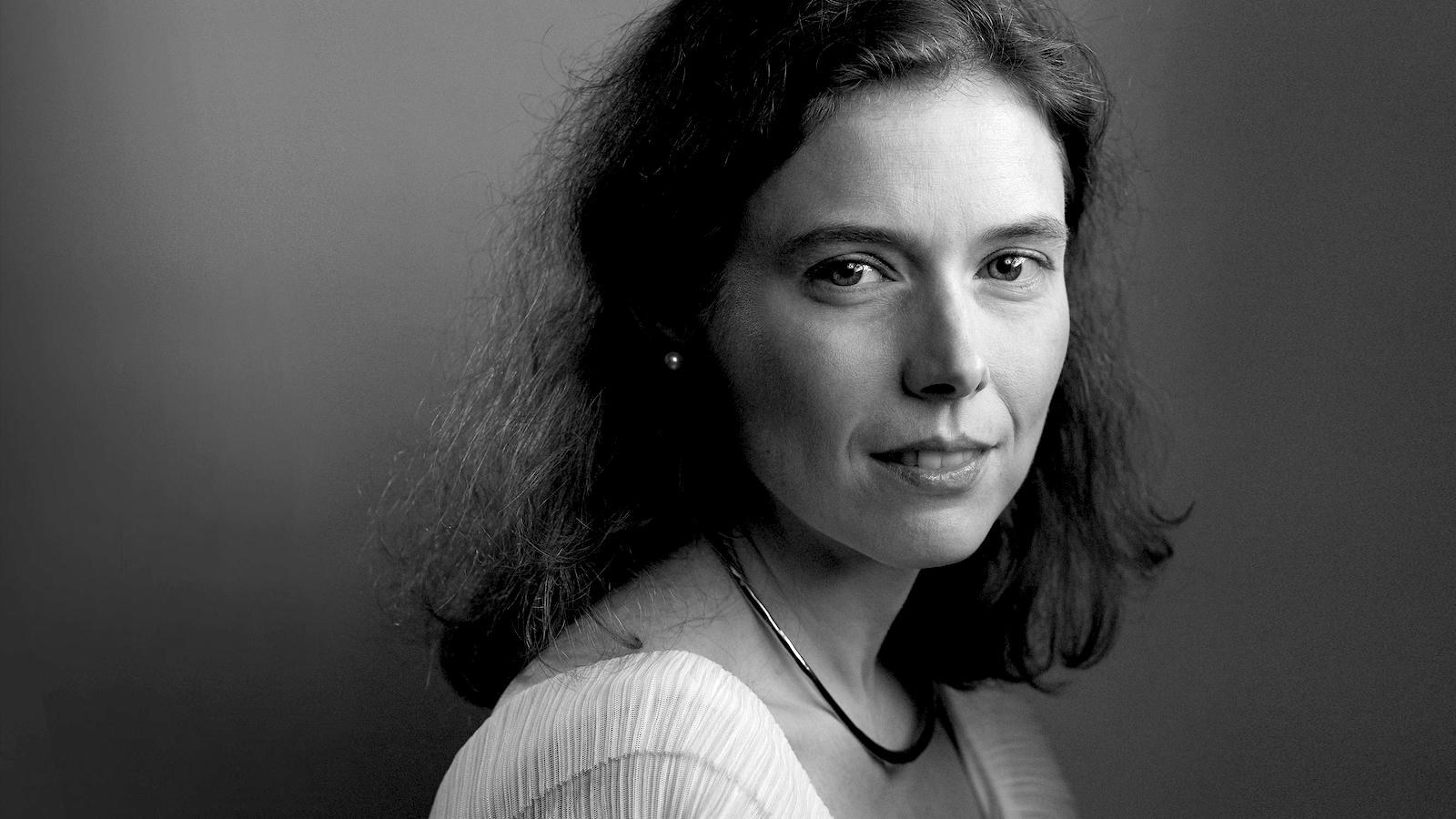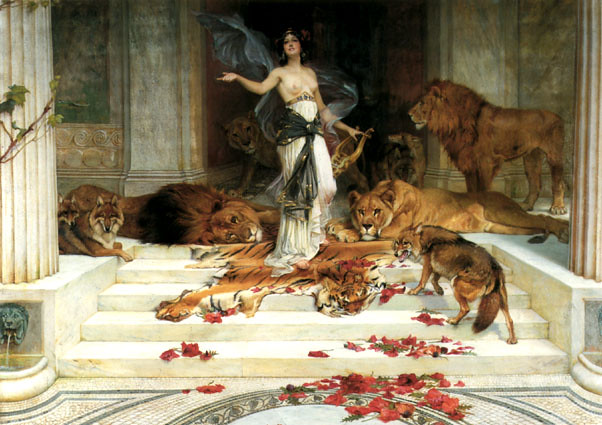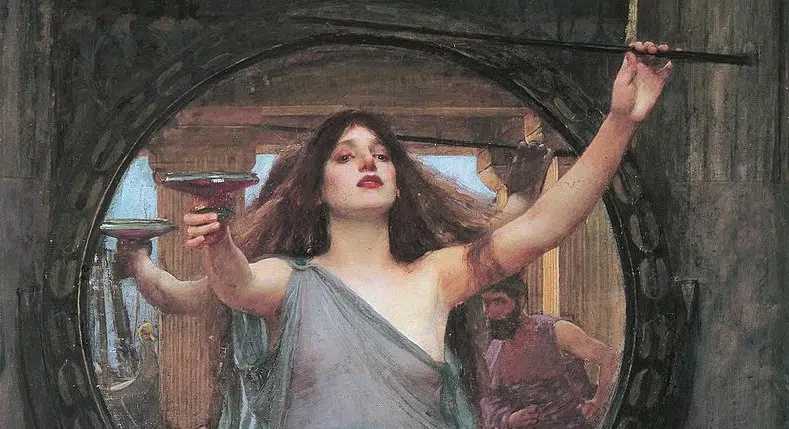By Dimitra Gatzelaki,
In Circe, Madeline Miller not only transforms the story of the witch Circe, but also that of The Odyssey. She starts by casting Circe as the outcast, the black sheep of her divine family —a nymph with plain features and voice that’s shrill and mortal-like, a discord to the gods and deities around her who find worth in beauty and power. In the glittering palaces of her father, Helios, Circe stands apart, feeling like a piece of coal in a world of gold.
It is during her exile on the remote island of Aeaea —an arrangement decided by Zeus and her father (yet another example of men determining a woman’s fate)— that Circe becomes the ruthless, powerful witch we recognize from The Odyssey. She carefully hones her craft, gaining a power so alien and strong that even Gods fear. But despite her thriving power, Circe is a lonely woman, with only her wild animals and herbs to keep her company; so, when sailors’ ships begin to land on her shores, she welcomes them. The darkness she discovers in the hearts of men —who, even with her divine status, see her as nothing more than a helpless woman, prey—disillusions and hardens her like stone under foaming waves. From Circe’s pain, her most famous trait emerges: she begins transforming sailors into pigs, convinced that they are, without exception, inherently evil.

And then Odysseus arrives —and Madeline Miller gets to narrate the episode in her own way. “Circe was a goddess, why was she afraid of a sword?” she writes on LitHub. “I had been pleased to see a character like Circe, so vivid and unusual and powerful. But of course that power was the problem. A woman who could control men was unacceptable. She must be corrected by the hero, set back in her place. Instead of Odysseus being transformed by her spell, she is the one changed: from potent, independent goddess to bedmate, helpmeet, patient nurse of men’s pain.”
Simply put, Miller wasn’t satisfied with Circe’s portrayal in The Odyssey, so she gave her the story she deserved. In the process, she also dismantled the myth of Odysseus as a noble, selfless hero. In the final chapters of Circe, the goddess-witch finally meets Odysseus’ wife, Penelope, who arrives on Aeaea with her son, Telemachus. And the portrait Odysseus’ son paints of him is far from flattering.
From the Iliad, we picture Odysseus as a skilled warrior, brave and cunning, second only to Achilles. As he faces hardship after hardship, delay after delay on his journey back to Ithaca, his only purpose seems to be returning home to his kingdom and family where he hopes to live out his days in peace. But, in Miller’s novel, after his return, Telemachus tells Circe that Odysseus wasn’t the selfless, kind-hearted father he had been led to believe. He was a man forged by war, who sought conflict in all he did.

After killing the suitors who besieged Penelope, Odysseus became paranoid, seeing enemies everywhere. His thirst for battle couldn’t be doused, and a quiet life in Ithaca tending to his kingdom was no longer enough. He was, above all, a man of war. And so, through Circe, Miller reveals a more realistic side of Odysseus, one that might disillusion the reader, but that is no less true.
Miller claims that she’s always remembered her first reaction to Odysseus and Circe’s meeting, and that her second novel Circe was a mindful response to that reaction, arriving 25 years later but still as relevant as ever. In her first meeting with Odysseus, Miller writes, Circe “still yields to Odysseus’s trick, that is a piece of the plot. But she does not kneel”.
Reference
- Restoring Power to the Women of Ancient Myth. LitHub. Available here




